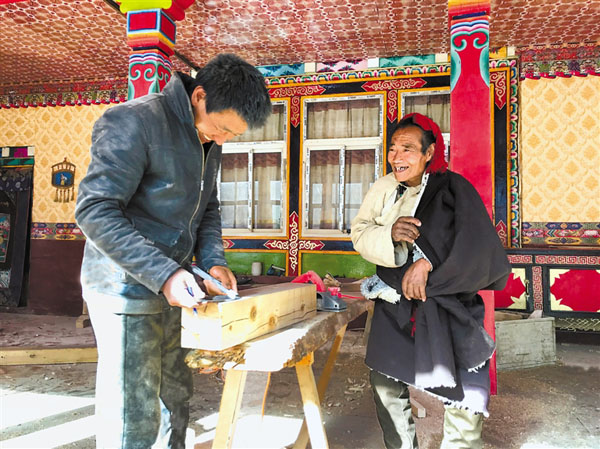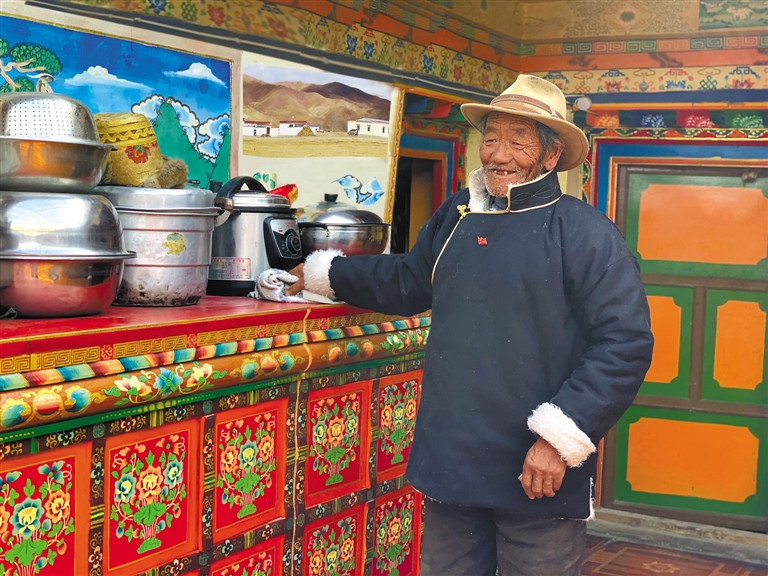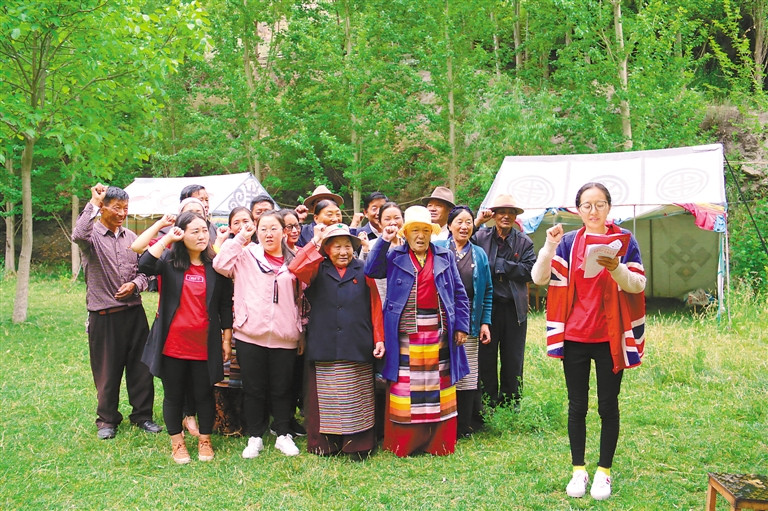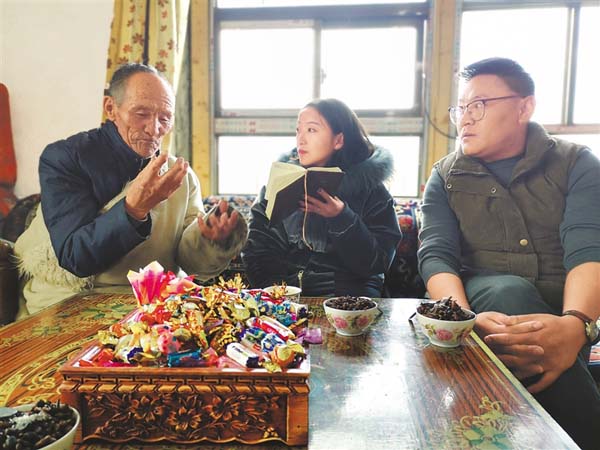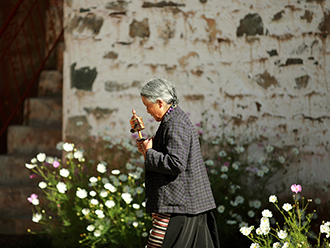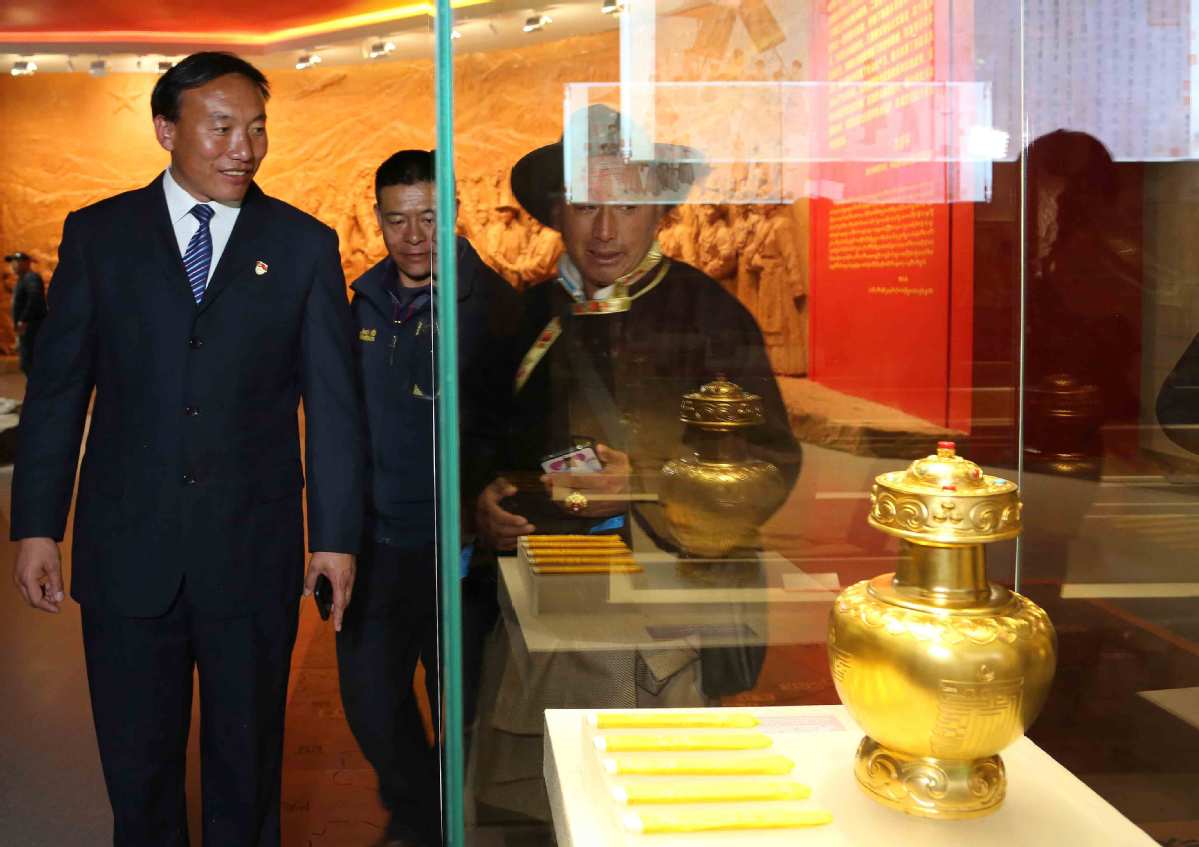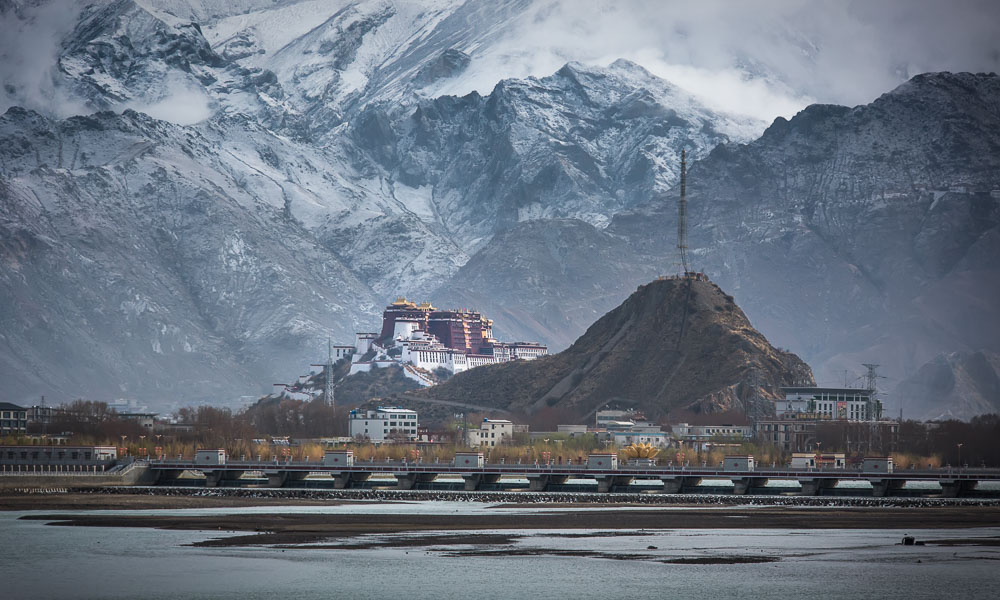Chozin Drolgar: once lives in a cave as a serf
Chozin Drolgar, born in 1945, currently 74 years old, now lives in Sangyul Village, Chatang Township, Chanang County, Lhoka City, southwest China's Tibet.
Before democratic reform in Tibet, Chozin Drolgar and her family were serfs of the Gartse Estate, and they lived in a cave.
"We had to sleep on the floor. The bedding was thin, and we didn't cover much. It was so cold we shivered." As she spoke, Chozin lifted the thin shirt on her body and said, "It was as thin as this shirt, it definitely couldn't protect against the cold."
Living in such a cold environment for so long made Chozin Drolgar's parents suffer from serious arthritis.
"My parents often said the pain felt like their bones were cracking. They couldn't stand it, and they wanted to die." Chozin Drolgar told reporters that when she was young, she often heard her parents sobbing, and sometimes she saw them crying during the day. There was nowhere to go to see a doctor, and in order to relieve the pain, her parents could only go up the mountain to find some herbs. But their effect was not that great, and they still had to endure the pain every day.
Chozin Drolgar told reporters that before democratic reform, her parents and her sisters not only served the Gartse estate, but also had to serve the Chatang estate and Chanang Dzong. "We would get up before the day was light and not come back until after dark. Each day we could only eat a little tsampa to fight out hunger."
When she was still young she had to grow up, and Chozin Drolgar and her brothers and sisters could only pass their time in hunger.
"Every meal we only got a half cup of tsampa. Hunger makes people panic." Chozin Drolgar said that when they were very hungry, she and her brothers and sisters would go to the nearby mountains and cut thistles to change for some tsampa. "A bundle of thistles could only replace a small bag of tsampa. It was still not enough."
Finally in 1959, Tibet's democratic reform brought new life and hope.
"After democratic reform, our family was given 14 mu (1 mu = 0.165 acres) of land and 81 sheep." Chozin Drolgar said that the first Tibetan New Year after democratic reform was the most profound and memorable one.
"At home we slaughtered six sheep. We boiled three and barbecued three, and we also brewed highland barley wine. My father enthusiastically taught us how to drink highland barley wine and that the Tibetan New Year should always be celebrated like this." As she spoke, Chozin Drolgar laughed.
"After democratic reform, life at home got better and better. We renovated the house, added furniture, and bought home appliances…" Chozin Drolgar said that when she slept in a bed for the first time, she could not believe it, for fearing this life would suddenly disappear.
"Now life is good! There are so many big hospitals, and we have medical insurance if we need to see a doctor." Chozin Drolgar says regretfully, "If only my father and mother were still alive today, it would be even better."
Chozin Drolgar especially likes to watch the Tibetan TV Channel. "I see how happy other people are, and I feel the same." She especially cherishes the hard-won life she enjoys today.
Chozin Drolgar's current home was built with help from the government.
"You see, the house is so good. It is not hot in the summer and not cold in the winter. It is comfortable," Chozin Drolgar said with a smile.
Editor: Tommy Tan.
Tibet Stories
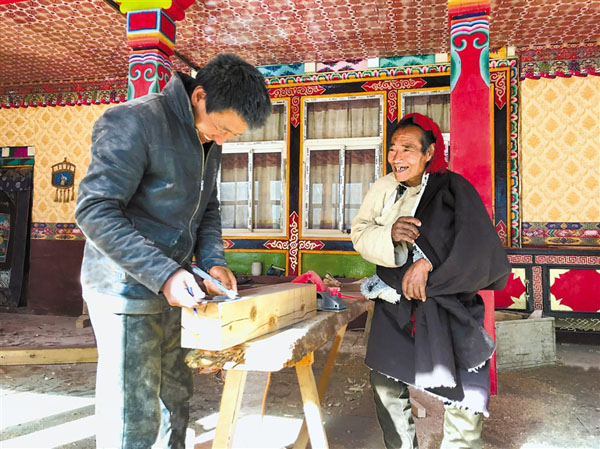
Former serf Sonam Ngodrup: Can't forget the hard days of sleeping in the sheep pen
"Now the days are getting better and better. If I get sick, I have medical insurance. Housin...
Editor’s Choice
- Prominent Belgian sinologist says nobody can deny rapid economic development of Tibet
- Tibet's cultural industry sees sound development
- 11th Panchen Lama: abolition of serfdom engraved in the minds of the people
- Eco-friendly toilet to be set up at 7,028m on Mt. Qomolangma
- Tibet establishes HIV/AIDS prevention, treatment association
